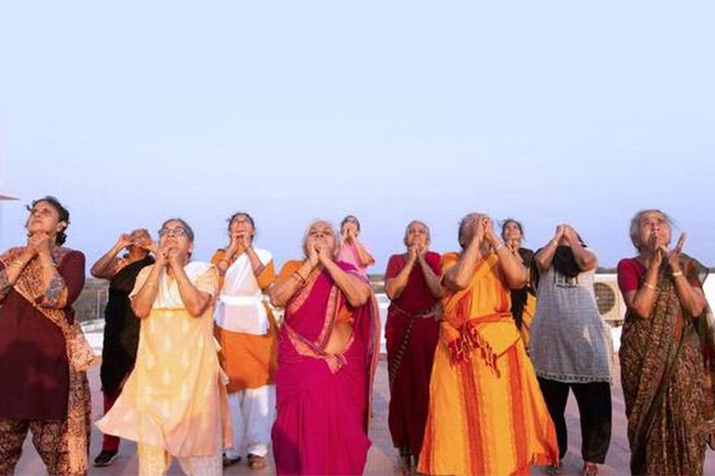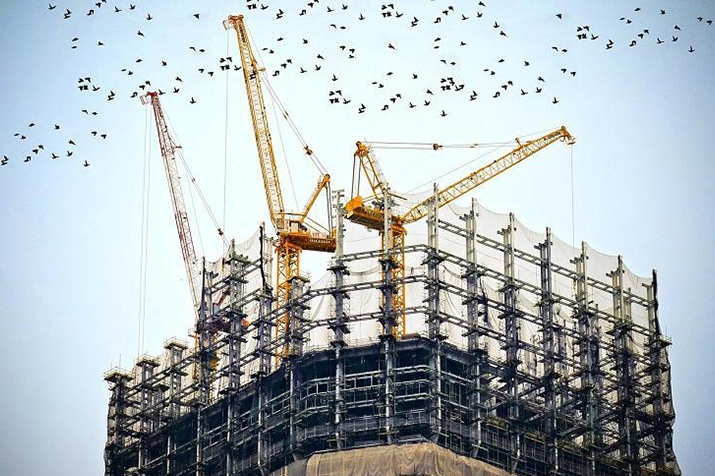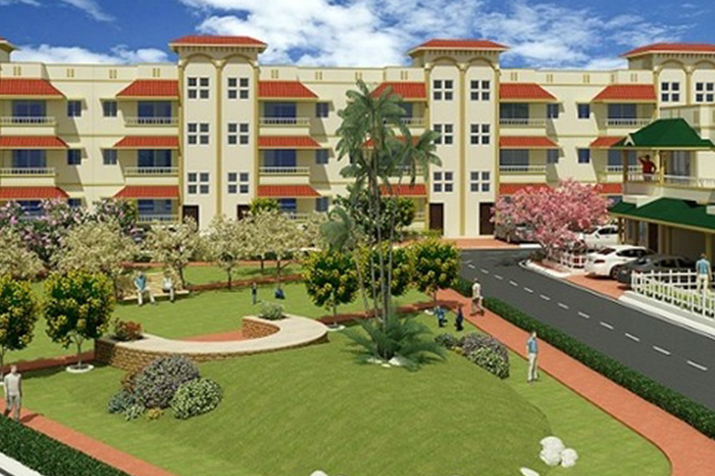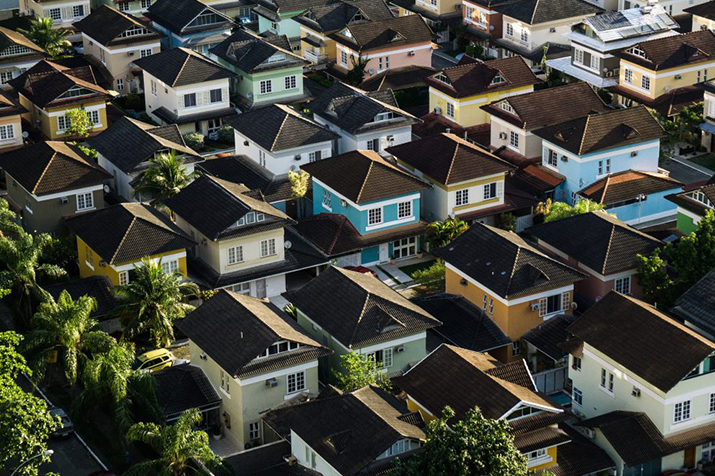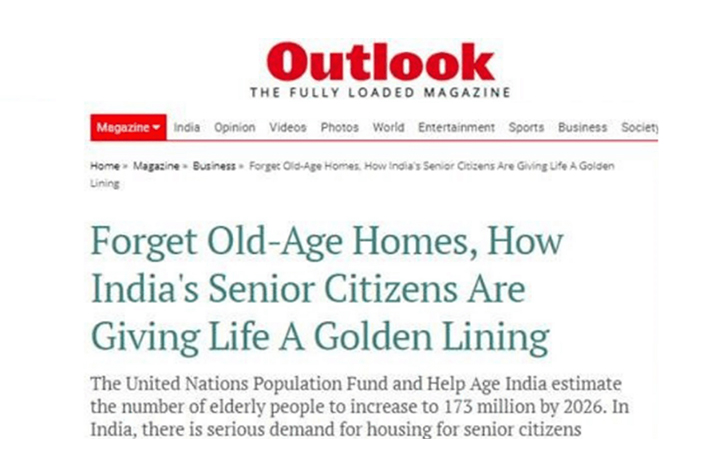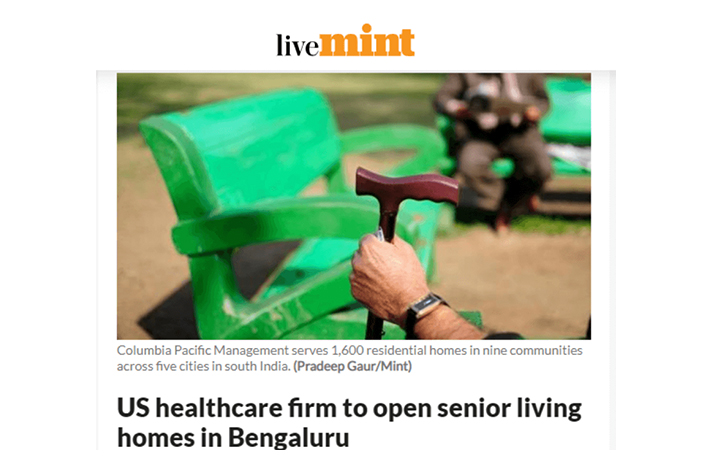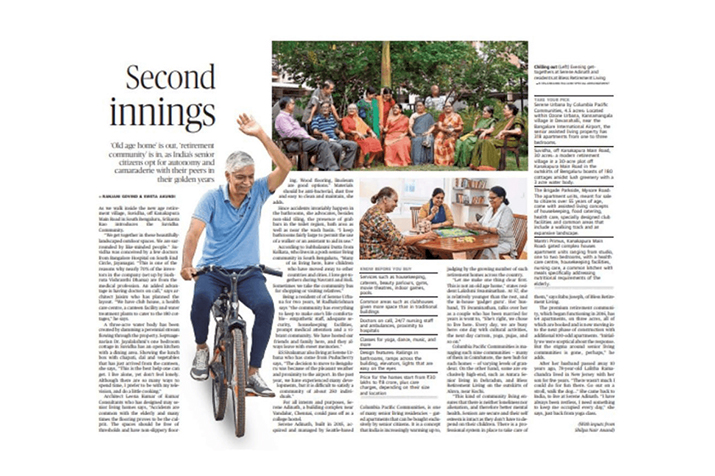The global COVID-19 pandemic has severely affected luxury businesses across the globe, and the Indian luxury sector is no exception. The industry, however, is ready with a plan to fight it. Vivek Sahni, CEO & Co-Founder, Kama Ayurveda “The crisis has impacted the retail industry at large. The pandemic has forced many beauty brands to shut its brick-and-mortar stores, which means a reduced number of touchpoints for the brand to communicate with its audience. While its hard o predict the changes in consumer behaviour but one is sure that the change will be dramatic.” Priyanka Modi, Creative Director, AM:PM “The situation we are dealing with is unprecedented. I would’ve compared this to a past crisis but nothing comes close to this global fight for survival. I think I can speak for my fellow designers when I say that all business operations have been gravely affected and the challenge will persist long after the problem is resolved. Keeping in mind the need of the hour, we have taken stock of the situation and are consistently course-correcting our marketing and sales initiatives. At this juncture, the launch of our SS’20 mid-season capsule collection has been put on hold until the situation normalises, production and day-to-day activities have been suspended, all our brick-and-mortar stores across the country were closed even before the official directive came from the government in the interest of the safety of our customers and staff members. Our online store is battling a huge fall in the number of orders, as deliveries have been put on hold until the lockdown is lifted. We are taking this time to judiciously reassess, re-strategise and re-organise for when the market opens up again.” Rakhee Bedi Kumar, Founding Principal, Rakhee Shobhit Design Associates “The luxury industry was already under immense pressure from the slump in the Indian economic growth and this pandemic has completely halted the growth. Although a majority of organisations are undertaking preventive measures and shifting their businesses to a virtual/digital mode, the larger intent is to continue their business functions more responsibly. But, if the product/service of the brand is not essential during this crucial time, it will be severely impacted, which has always been the case with the luxury industry. Once we overcome the challenges, the government will present more favourable regulatory schemes and mandates to ensure a regular flow of goods and services across all major industries.” Rajesh Bhandari, Director, A-Class Marble India Pvt. Ltd “The luxury industry was already under immense pressure from a slump in the Indian economic growth and this pandemic has halted the growth to a standstill. Although a majority of the organisations have been hyper-active in undertaking preventive measures and shifting their businesses to a virtual/digital communicative mode, there is a larger intent to continue their business functions more responsibly. But, if the product/service is not essential during this crucial time, it will be severely impacted negatively and that has always been the case with the luxury industry. Once we overcome the present challenges, the government will present a more favourable regulatory scenario and mandates to ensure a regular flow of goods and services across all major industries.” Sunil Sethi, Chairman, FDCI “Previously scheduled from March 11 to 14, the biggest fashion show and business of Indian fashion was postponed indefinitely. This was one of the major decisions that we took for FDCI as an organisation. While we wholeheartedly support the organisation’s intentions to safeguard public health and wellbeing of its fraternity, the postponement of the show of such a mammoth scale isn’t easy on people who have spent months planning and executing it. The virus is increasingly having a negative impact on the fashion industry. Arja Shridhar, Director & Co-Owner, Indianapoli Hospitality “Given the current containment measures, we felt that it was most sensible to temporarily suspend day-to-day restaurant operations – losses notwithstanding. In the interim, all our outlets will accommodate home delivery and strict procedures are put in place for our teams to always operate only whilst wearing gloves and masks. Our cooking and dining spaces are thoroughly sanitised at regular intervals and stringent monitoring of all the staff, including security guards, is conducted regularly, using laser thermometers. Our teams at Indianapoli are dedicated to exercising every caution in these lean times.” Mohit Nirula, CEO, Columbia Pacific Communities “In the times of this crisis, we hope that the government delivers clear and decisive messaging and rigorous implementation to ensure all citizens understand their role in limiting the spread of this virus. The first message of precaution not panic was a good start. We too are educating people by sharing with our residents the right information and dispelling myths about the flu.” Nitin Kohli, Founder & Designer, Nitin Kohli Home “It has been a sudden turn of events for the complete world. We, at Nitin Kohli Home (NKH) had taken a call to work from home on March 19, before the announcement by the PM (March 22) for junta curfew. A week before the shutdown, we started getting messages from new clients to put new projects on hold. Also, most existing clients also put some part of their project or orders on hold. This prepared us for what was in store for us. From the government, I am expecting big relief in terms of GST, banking and deferred EMI payments. After reopening, all reserves will be diverted priority-wise. I, as an individual, would like to first secure my employees and the employees of all companies associated with us.” Samrath Bedi, Executive Director, Forest Essentials “This plague has hit all businesses. Given the circumstances, operating business as usual is not an option and this has definitely hit the retail front. We are ensuring that our primary point of contact with the customers during this crisis is through social media platforms. We are accessible to all our customers online at any given time, and our employees will respond to them from their homes, as is the need of the hour. We are certain that the government will take the necessary actions that help curb the situation, so that we all can come out of it safe and sound.” Chef Rahul Akerkar, Founder & Managing Partner, Qualia Hospitality LLP “The Bombay chapter of the National Restaurant Association of India convened a meeting to discuss several aspects of COVID-19 and to address restaurateurs’ worries, as is natural in a time of uncertainty. The decision to temporarily wind down operations was not a mandate by the government, but a unanimous choice of the collective of restaurateurs and business owners present. The safety of team members, employees, customers and family are paramount. Business can suffer losses, but there is no replacement for the people that helped build it. At the moment, uncertainty is our fundamental problem; no one really knows how long this will last and when and where will it end. This is not a global recession, it’s a depression. However, as they say – this too shall pass.” Gautam Gupta, Designer, AshaGautam “The store and factory are closed and workers are asked to stay home, while some designers are working from home till March 31. Clients have been informed about the same. Lots of weddings have been cancelled and the next two months are going to be critical. We hope that no more humans die. Financial losses can be recovered eventually.” Nitin Arora, MD, Katalyst Entertainment “Our industry is probably the worst hit. Shows, conferences and weddings have either been cancelled or postponed. In the coming two months, we might be dealing with huge losses, estimated at ₹3,000 crore. I think whatever the government is doing is quite commendable. I’d like to appeal for some kind of GST concession to the entire industry so that we can cope with this loss.” Neha Arora, Director, VVWeddings “COVID-19 has surely been an unwelcome guest for the wedding industry. While it has started affecting the events industry, the wedding industry in India is not majorly affected yet, since these few months are not the peak wedding season. Although, having said that, the industry may be hit eventually. Local, in-city celebrations will be considered over domestic or international destination weddings. International artists travelling for performances and guests travelling for the wedding may not be able to do so; thus, small, intimate celebrations would be preferred over grand guest lists. Other requisites for a wedding can be easily managed through alternatives. For the few weddings which have been postponed due to COVID-19, all vendors and hotels are being very accommodative by not charging retention fees and providing credits for non-perishable services and products.” Pradeep Lala, CEO & MD of Embassy Services Pvt Ltd “The company is always focused on the safety and security of its employees inside the park. Over 2,50,000 people work across 11 Embassy business parks and properties for over 200 tenants. We provide a daily update of actions implemented and contingency plans to over 1,000 tenant representatives – real estate and business leaders. We have an activated Crisis Management Team (CMT), which represents all our premises across India and is focused on five key areas —people, medical, education, operations and communication. We have also created isolation rooms and ambulances are available across all the parks. We have identified the list of hospitals equipped to treat COVID-19.” Nikhil Kapur, Founder Director of Atmantan Wellness Centre “The caveat built around the spread of the Novel Coronavirus has made the entire world go in a state of emergency. While the threat is poised to grow over the coming weeks – Hotels, restaurants, etc are advancing their services and prepping up to fight through the urgency with due care. Some of the precautionary measures include creating awareness amongst the team and members through exclusive training, covering report on Coronavirus symptoms, measures to be taken, etc. Thermal screening is also being done on the guests on arrival and the staff periodically, while ensuring usage of masks by the HK Staff and therapists working on the premises.” Kunal Vora, Founder, ABND “Hospitality & Tourism Industry is always the first to be affected during a health crisis. While this is going to be bad for business, there might be an opportunity here. Brands in this industry could use the downtime to interact with their target audience and establish a brand purpose that distinguishes them from their competition. For instance, Airbnb’s free housing for refugees initiative or the more recent LVMH’s US $2.3 million donations to the Chinese Red Cross to fight COVID-19.” Shishir Baijal, Chairman & Managing Director, Knight Frank India “The current pandemic has created some economic challenges across the world. We have seen a correction in stock and equity performances, which is creating liquidity issues. However, the demand in commercial real estate has remained strong. Due to the current advisories, restricting travels, the decision-making process might be delayed. Therefore, the short-term impact on the real estate sector remains contained. The long-term impact is unknown as the longevity of the crisis is uncertain.” Vaniitha Jaiin, Wine & Spirit Expert “Hotels, restaurants, wine and spirits retail are all impacted as the travel and tourism business has come to a standstill. Apart from MICE (meetings, events, and incentive travel) that are the most affected, many events and experiences are also kept on hold and rescheduled for a later date. In the wine business, Italy, which is one of the most significant wine-exporting nations, is badly affected. Moreover, due to the crisis, some of the major events where wine and spirits importers and foreign producers get together to talk business are cancelled or postponed. These include Messe Düsseldorf, Vinexpo Hong Kong, VinItaly in Verona and Grands Jours de Bourgogne.” Samantak Das, Executive Director & Head of Research, REIS, JLL “The COVID-19 situation remains fluid and uncertainty still looms large on the possible economic impact of the outbreak. Global supply chains will be disrupted in the short-term and this will undoubtedly have some impact on manufacturing in India. At this stage, the UN estimates the trade impact of the epidemic in India to be $348 million on the external front. Given that the real estate sector contributes significantly to India’s economic growth, it is important to broadly analyse how the outbreak will influence this sector and it’s still premature to assess the current impact. The retail sector too will be challenged due to sourcing disruptions in the apparel, footwear and accessories space.” Srishti Arya, Founder & Director, Happy Dancing Feet (Luxury Wedding Choreography House) “Many destination weddings are cancelled because relatives of the bride and groom from abroad are unable to make it to India. Many families, however, are willing to take the risk and not cancel the wedding as they have spent an exorbitant amount of money and have everything booked. Two to three of my events have been cancelled and apart from the monetary loses, we are also suffering from ‘the season crisis’ as this is our only time to work – November to May, the peak season. We are losing out on work and making losses. However, we understand that it is for the greater good.” Aakash Ohri, Senior Executive Director, DLF Home Developers Ltd. “Every crisis leaves a prolonged impact on economics, and coronavirus is no exception. The COVID-19 pandemic will change consumers’ mindset and value system that underpin their luxury buying decisions. The outbreak may force luxury consumers to assess things differently. They might seek reassurance and stability, which is where investment in real estate will play a key role. Real estate continues to offer attractive relative returns in comparison to other asset classes in times when consumers are looking for long-term security more than ever. We foresee that the buying-selling pattern will change. Consumers will prefer seeing properties online through virtual tours and may not visit the site physically. The industry is taking all possible measures to mitigate the impact of COVID-19 on business by ensuring favourable pricing, moderating sales targets in alignment with the current realities, etc. And we hope for the continued support from the Government.” Aakash Ohri, Senior Executive Director, DLF Home Developers Ltd. AD Singh, Managing Director, Olive Group of Restaurants “COVID-19’s impact on many industries will be catastrophic, which will lead to a huge loss of jobs and the resultant disastrous effect on the economy. At this time, we all look to the government for clear supportive leadership to the affected industries through a variety of measures including tax sops, input tax credit, etc. For now, the impact has been on parties, events and tour groups. The domestic à la carte diner has been only slightly affected, but we expect this to get much worse as the virus spreads.” Amit Bagga, Co-Founder, Daryaganj “We have provided sanitisers to our guests. We are also cleaning and sanitising the restaurant three times before opening, during the break and after closing, with all the kitchen staff wearing masks, using sanitizers and washing hands with soap every one hour. We are also checking temperatures of staff with infra-red thermometers and sending the ones with fever or cold back to their homes. Our mall outlets don’t have washrooms, but the ones that have, are being cleaned and sanitised every half hour.” Anuj Puri, Chairman, ANAROCK Property Consultants “In the residential real estate sector, site visits have decreased, but expressions of interest continue, and we expect the situation to stabilise over the next 30 to 40 days. This is the most unsettling healthcare crisis in recent times. The latest warnings and directives related to COVID-19 are unambiguous and the implications are clear enough. India Inc is battening down the hatches in every possible way.” Arun Ashok, Country Manager – India, Luxury Escapes “By far, travel has been the worst affected industry. Aeroplane seats and hotel rooms are perishable commodities—if today’s inventory is not sold then they’re lost forever. We’re essentially looking at almost two months or 17 per cent of the year’s inventory wash-out. Indian travellers also tend to not purchase holidays beyond two to three months before the travel dates, so, it’ll be a while before we see people buying travel packages again. The current state of the financial markets will also pinch discretionary spending power. We will probably see business travel recover faster than leisure travel. Clear communication across multiple platforms and agencies, a strict crackdown on misinformation and efficient management of our medical facilities are all that’s needed for now.” Chef Hemant Oberoi, Hemant Oberoi Restaurant, BKC “We are taking precautions at our end by explaining all staff members the care they have to take while travelling and at work. They are provided with masks while on duty and also hand sanitisers. Every hour, they have to wash their hands with liquid soap and sanitise their hands. The health authorities must make sure that there is enough supply of masks and sanitisers as some people are charging triple the amounts because of the increased demand.” Cholada Siddhivarn, Director Tourism Authority of Thailand Mumbai office “For every traveller, it is extremely crucial that he/he is always alert and undertake additional safety precautions. However, alongside physical preventive measures, I believe that one must be consciously aware and not be a victim of the virus or even the nervousness of being affected by it. As a destination, Thailand is safe and is ever-ready to welcome tourists. Thailand authorities are exercising robust screening at all port of entries. The Thai private sector comprising of hotels and attractions too are providing health kits to ensure the best hygiene practices to combat the situation. I am certain that with such constant and combined efforts, we will thrive through every peril.” Dinesh Arora, Founder of Unplugged Courtyard and La Roca “In the midst of the spread of Coronavirus, we’ve been more cautious than usual. As awareness is the key to stop this, we are putting our best foot forward to keep the staff and consumers updated about the health advisory issued by the government. We are making sure that there are sanitisers on every table as hygiene and health of the customer is our utmost priority. Yes, there has been a slowdown in this industry, people are cautious about the situation and we need to understand that we are doing everything we can to help the situation and hope for things to get back to normal.” Gauri Devidayal, Director, Food Matters India Pvt Ltd “As a brand, we continue to ensure the highest standards of hygiene awareness among our employees. Banquets and events division is seeing the sharpest dip as massive cancellations requests continue to pour in and destination weddings are being called off or postponed. While restaurant dining has witnessed a dip of 30 per cent to 35 per cent, the drop is sharper in restaurants situated within the malls. The banned inbound traffic by the government until the end of March will have a direct and massive impact on tourism/travel of all natures. We expect the mall owners and other landlords to either give a moratorium on the rents or at least majorly subsidise and rationalise the rents until the impact of this pandemic weans away.” Gayatri Ruia, Head of Palladium Mall & Phoenix Mill Compound “We are following the government’s directives and have closed all the shops in the mall except the restaurants inside. Our business, of course, is severely affected, and unfortunately, the Indian consumption market is not deep enough to quickly recover from the current condition. We hope that the government considers delayed tax payments this time around.” Hyatt spokesperson, Hyatt Hotels Corporation “We have introduced comprehensive COVID-19 guidance across Hyatt hotels globally. It details how to protect oneself from the transmission of the virus (installing hand sanitiser stations and frequent cleaning of high-touch areas) and procedures in case there is a suspected or confirmed case among our guests or colleagues. Cross-functional and global response teams including infectious diseases and occupational health experts are providing guidance to our hotels and help address specific situations if needed. All precautionary procedures and protocols are in line with the recommendations made by the World Health Organization, U.S. Centers for Disease Control and Prevention and the local authorities in each country. To provide additional flexibility to our guests who have travel plans to and from countries with severe travel restrictions, Hyatt is waiving cancellation fees for stays until March 31, 2020.” Jaideep Dang, Managing Director, Hotels & Hospitality Group, JLL “Business-wise, there will likely be an impact in the hospitality sector, especially on luxury hotels. Luxury chains have about 60-65 per cent foreign travellers in their total guest composition and a large chunk of their business will potentially be impacted this season. Luxury hotel rates are also likely to decline in both quarter one and two as a result. A full rebound may take time, but we could see some recovery signs in the third quarter depending on the situation. Mid-scale brands, on the other hand, derive more business from local tourists, but even for those chains, two quarters are going to be challenging, as domestic travel restrictions come into force. Occupancies will be hit for sure, but given the fluidity of this global situation, assessing the impact is a challenging proposition.” Kanika Tekriwal, Founder & CEO, JetSetGo Aviation Pvt Ltd ‘’The verdict of the government on international visa suspension from March 13 to April 15 in the wake of curbing Coronavirus is a massive preventive step. It, however, has impacted the travel business. Our crew members are being extremely cooperative, but we are refraining from operating in the most affected countries such as Iran and China.” Lubaina Sheerazi, Director, Brandit “The Coronavirus pandemic has deeply impacted the travel industry and the business of tourism across the globe. Currently, the industry is cautiously watching the situation and taking measures wherever necessary to lower the risk of escalation of the outbreak. This, however, has caused a dent in bookings, especially in the luxury travel segment. It has taken a massive hit due to travel restrictions by government authorities to any destination outside of India during the peak spring/summer holiday season. Even domestic tourism is beginning to see the effects of the crisis, stifling all segments – inbound, outbound, domestic and almost all tourism verticals. Travel globally is unbelievably spirited and people’s desire and need to travel will possibly overshadow their worries fairly quickly. We are hopeful that the status quo will change soon.” Mehul Sharma, CEO & Founder, Signum Hotels & Resorts Pvt Ltd “We have ensured that all touchpoint areas are sanitized, and have asked the staff to wear protective gear while cleaning. While the final outcome of the crisis is unknown, it’s clear that the economic impact is going to be significant as China’s travel market, one of the most important in Asia and among the fastest-growing in the world has slowed down considerably.” Pooja Ashley & Arbaysis Ashley, Co-Founders, Ashleys’ “The market of luxury interiors is huge in India and is largely dependent on manufacturers across the globe. Italy is still the leading hub for product design; one of the most recognised furniture fairs—the Salon de Mobile, has been shut down, due to the unfortunate crisis as a result of the pandemic. This has led to a design crisis as interior design depends on global trends, hence delaying project decisions. Sanitary ware, window systems, premium tiles are all from Italy and Turkey, which are now tough to reach for. China, the epicentre of the pandemic, had been a leading market for furniture and lighting fixtures. Every year, Indian designers and agents visit China to import furniture, lighting etc. With the magnitude of dependency on imports for luxury projects from different parts of the globe, the pandemic is sure to delay several projects.” Preety Arora, Head Business Strategy, Amatra Hotels & Resorts “Many business travellers from China take weekend trips from Delhi NCR to the hills and other tourist destinations, but recently, we have witnessed a fall in queries from Chinese nationals. However, it is a very small percentage of the total number of travellers, and we do not foresee any impact in the medium to long term. Moreover, industry experts believe the worst of the outbreak is behind us.” Ranbir Nagpal, Partner, Yazu – Pan Asian Supper Club “Footfalls are of course expected to be down because people are in a panic state. We are trying to make our place a safe choice for people if they want to step out like always. We’ve been monitoring the health of our staff very closely and we’re making sure that anybody who is not fit or who has the slightest cold or fever is not coming to work and reporting in sick.” Rigzin Namgyal, Owner, Ladakh Sarai “We at the Sarai and Journey to Ladakh are taking extreme precautions to make sure our resorts and offices are completely sanitized every day and the staff wears masks while at work. The government is already doing what it can to help contain this pandemic. We have heard that permits have been cancelled this year and proper screening is being done at Leh airport as well. Road travellers are also being screened at various checkpoints. The government has also set up isolation centres in Leh at different locations. Tourism will be affected this season in a big way. It is unlikely that any movement will be seen before July 2020, even if the pandemic is successfully curbed. But precaution is better than cure. Ladakh is a land with limited resources and there is only so much adversity that we can handle effectively.” Roop Pratap Choudary, Managing Director, Noor Mahal “The outbreak has certainly impacted outbound travel, but domestic tourism is slightly affected and the impact is temporary. This impact will also fade away, as travellers are gradually picking domestic travel and staycations over international travel. There is no long-term impact on the Indian luxury hospitality segment. The category is a little precautious but is consistently serving world-class and authentic experiences. Also, with the shift in focus towards domestic tourism, there is a huge opportunity for independent hotel brands and boutique hotels in less explored destinations to shine. As people are avoiding air travel, exceptional properties in and around key metro towns of the country are in demand. The wedding segment is also cherishing and is big revenue support for the hotel industry. At Noor Mahal, we have witnessed no decline in wedding bookings or staycations. Although MICE segment is experiencing the heat and we expect it to gear up for the next two months.” Shivani Shroff & Nishiket Parikh, Partners, The Terrace, A Maiden Affair “We have enacted elevated precautionary operational protocols including deep cleaning measures in the restaurant and kitchen area. We have sanitisers at every corner of the restaurant for the customers and servers to sanitise their hands before they touch or serve anything. We also started to conduct daily temperature checks for all the customers when they enter and exit. We have been monitoring the health of our staff as their safety has always been a priority.” Siddharth Goenka, Founder, Aiosell Technologies “There has been a considerable impact across industries following the Coronavirus catastrophe. The travel and hospitality sector, too, has seen an impact of 15-20% fall already, and companies and startups across sectors are restricting business travels for their executives as much as possible to avert any adverse circumstances. We have made certain steps mandatory for our employees, like keeping a sanitizer on the desk, allowing work from home for employees who have a cough and cold, as the weather is changing too. As a leader, it is my sole responsibility and we have been constantly keeping a track of the food habits that can make one’s immune system even stronger and circulating the relevant industry body reports internally to spread awareness as much as possible.” Spokesperson, Hilton Hotels & Resorts “We are doing everything we can to ensure safety and to provide maximum flexibility as the situation around Novel Coronavirus continues to evolve. Our hotel teams are following enhanced operating protocols. We have increased the frequency of cleaning our public areas (including lobbies, elevators, door handles, public bathrooms, etc) and have continued the use of hospital-grade disinfectants. We will continue to adjust food and beverage service in accordance with current food safety recommendations. We have increased the deployment of antibacterial hand sanitizers. We have also activated our regional and global response teams to provide around-the-clock assistance to our hotels and are prepared to act swiftly should we be alerted of a coronavirus case at one of our properties.” Spokesperson, Marriott International “We continue to closely monitor the ongoing situation. The impact is dynamic and changing daily. We are in close contact with local authorities and will take guidance and direction from them as warranted. The current travel climate has had some impact on the business environment. Given the uncertainty around the length and severity of the situation, we cannot fully estimate the financial impact on our business at this time. Currently, the safety and well-being of our guests and employees is our top priority. Our hotels will continue to follow recommended procedures and protocols issued by the Ministry of Health and World Health Organization. We do believe that this will be under control soon and when it does, it will be business as usual.” Vishal Singh, Founder & Managing Director, Vizion Lighting “The luxury lighting segment in India, is reliant on iterative processes with designers, as well as extensive interaction with customers to ensure effective customisation. This has been severely affected, especially for those whose manufacturing processes involve imported components. The crisis has shown that businesses across all sectors, big and small, have cash-flow issues and effectively live the equivalent of ‘paycheck to paycheck.’ Sharp declines in consumer demand can easily tip them into the red and, perhaps, even failure. Today, it’s incredibly important for the government to provide stimulus in the form of emergency disaster loans, delayed taxation, targeted assistance and more importantly, facilitating indigenous manufacturing.”
Continue reading “The Indian luxury industry is battle-ready for COVID-19”


